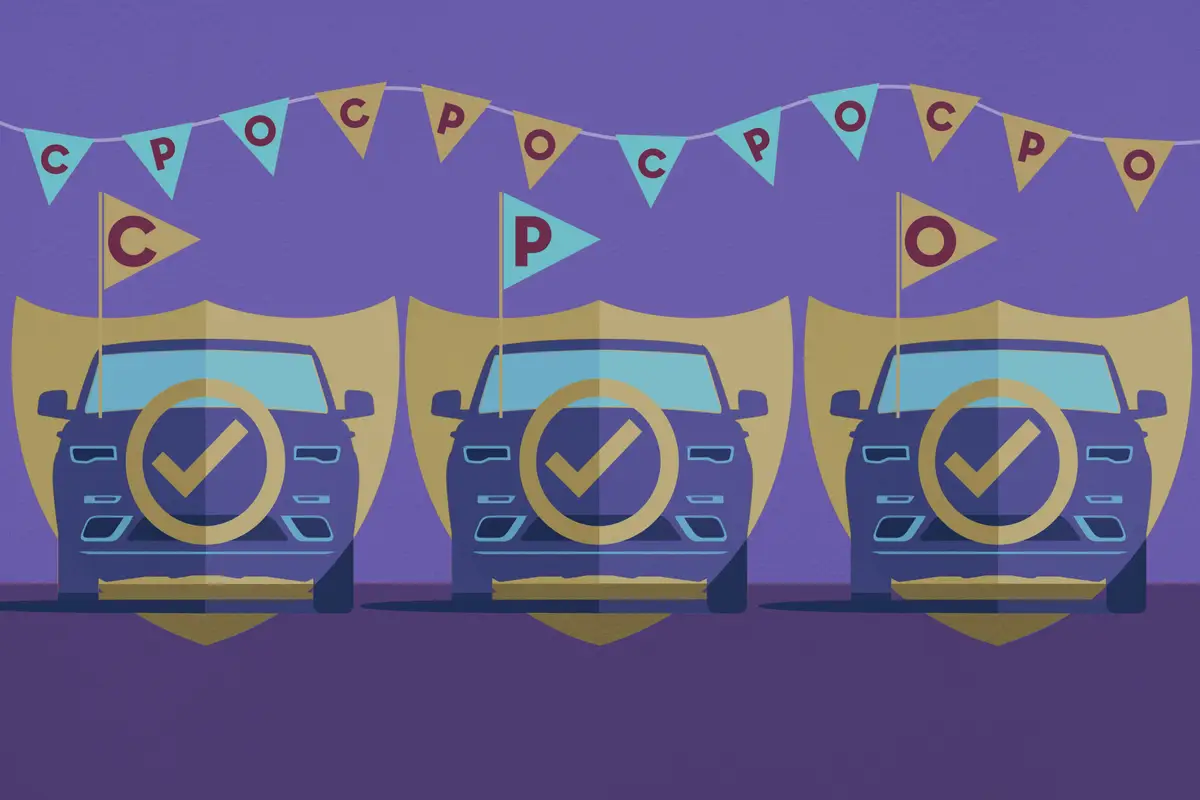Should You Lease a Certified Pre-Owned Vehicle?

Though you don’t often hear about it, it is possible to lease a used vehicle, including a certified pre-owned car. Several CPO programs have leasing options that offer the same benefits for used cars that have made leasing new vehicles so popular: A used-car lease payment will be lower than a monthly loan payment for the same car as a new vehicle, plus you usually don’t have to put as much money down.
Related: What Does CPO Mean?
Because of the way leasing works, a lease payment on a certified pre-owned vehicle also should be lower than a lease payment on a new version of the same vehicle. Here’s why:
Most of the cost of a lease is depreciation, but there also are interest charges, the down payment and other costs. The monthly payment largely is based on the difference between the car’s original value and what the leasing company projects it will be worth at the end of the lease (the residual value).
Because depreciation on a new car is highest in the first three years — with the first year being the absolute highest — a 1- or 2-year-old CPO car should have less depreciation over the next two or three years. That should translate into a lower monthly lease payment. The CPO car may also have time left on the automaker’s bumper-to-bumper and powertrain warranties.
CPO programs at an automaker’s franchised dealerships usually restrict leases to lower-mileage models that are fewer than 4 years old because it’s harder to predict depreciation as a vehicle gets older. When used cars are in shorter supply, finding the right CPO car to lease can be significantly more difficult than leasing a new car. Certified lease terms are generally the same with pre-owned leases as for the dealership’s new cars, with two-year or three-year terms and some dealerships offering four-year leases.
Another factor to consider is who certified the pre-owned car. Manufacturer CPO programs are often a better bet, as they typically allow you to have your car serviced at branded dealership locations across the country. Dealership-led CPO programs can sometimes be a mixed bag, with less scrupulous dealers sometimes using “CPO” as more of a marketing term than actual evidence of a prior inspection. Always ask to see the list of what was inspected or repaired, as well as the terms of the lease, before leasing a CPO car.
Is Leasing a CPO Vehicle a Good Idea?
In the long run (say, six to nine years), leasing usually is more expensive than buying a new car and keeping it for a while after it’s paid off. The same is true for used cars. If you keep leasing, you always will have a car payment and never have a trade-in for a down payment when you return to the dealer. If you decide to kick the leasing habit, you have to buy a vehicle — or walk.
Here’s the rub with leasing a used car: No matter how many miles are on the odometer, you’re closer to the end of the car’s basic bumper-to-bumper and powertrain warranties than with a new vehicle. Once the warranties end, you are responsible for all repairs — but on a vehicle you don’t own.
Even if the warranties are in effect on a leased CPO vehicle, you still will be responsible for maintenance. On a vehicle that is more than 3 years old, that can include replacing the battery, tires, brake pads and rotors, and even replacing the audio head unit (which could wipe out Bluetooth and the electronic climate controls if it fails).
Don’t expect to beat the system by ignoring things that break or wear out. You will get dinged for the cost by the leasing company when you turn the vehicle in at the end of the lease.
Because the risks are higher on used vehicles, don’t look only at the monthly payment. Understand what you could be responsible for in maintenance and repairs before you lease a CPO car.
The upside, however, is that because a leased used car will have a lower residual value at the end of its lease period than the same model leased as new, it may be a good candidate for a lease buyout. A lease buyout allows you to purchase the car you’ve been leasing; however, it’s worth noting that not all companies allow lease buyouts. Always research your specific model before deciding whether you want to buy it, and as you did before leasing it, make sure you understand what its maintenance and repairs could cost as well as when its factory warranties end.
Related Video:
More From Cars.com:
- Are Certified Pre-Owned Cars Worth It?
- The Basics of Buying a CPO Vehicle
- Pros and Cons of Buying a CPO Vehicle
- Factory CPO Programs Versus Other ‘Certified’ Vehicles
- Pros and Cons of CPO Versus an Extended Warranty
- Search for CPO Cars
Cars.com’s Editorial department is your source for automotive news and reviews. In line with Cars.com’s long-standing ethics policy, editors and reviewers don’t accept gifts or free trips from automakers. The Editorial department is independent of Cars.com’s advertising, sales and sponsored content departments.
Featured stories




